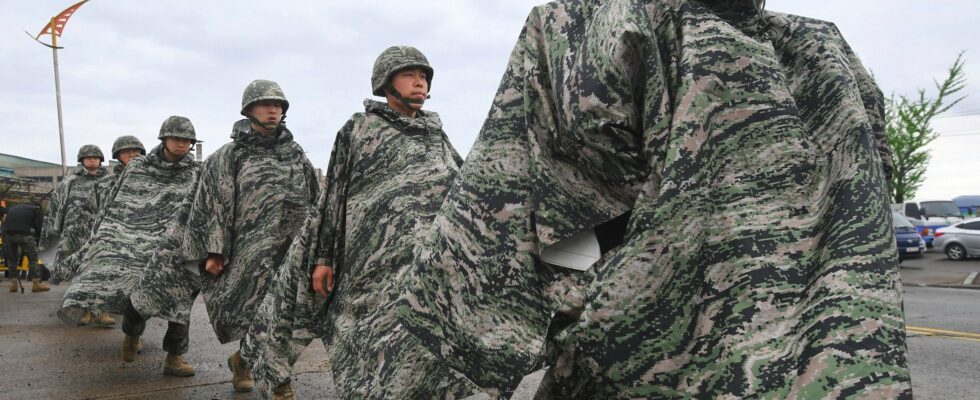Missile interceptions, air assaults and even live fire. This Monday, August 19, Washington and Seoul began their annual military exercises, as part of the “Ulchi Freedom Guardian” program, initiated in 1976. The latter, which this year brings together more than 19,000 South Korean soldiers, aims to prepare the armed forces in the event of an attack by North Korea, a country that has nuclear weapons and with which relations are extremely tense. At the beginning of the year, Kim Jong-un designated South Korea as the “main enemy”, dissolved government agencies dedicated to reunification and contacts with Seoul, while threatening to declare war if his neighbor encroached on his territory “even by 0.001 mm”.
“We are currently facing the most reckless and irrational North Korean provocations and threats in the world,” South Korean President Yoon Suk-yeol said at a cabinet meeting on Monday. In addition to the joint military exercises with the United States, which will last about 10 days, Seoul plans to hold civil defense drills to better prepare for possible balloon drops filled with garbage, a 70-year-old North Korean destabilization strategy, as well as drone attacks. GPS jamming operations are also said to have taken place for several days in late May 2024, according to South Korean authorities.
“Dangerous and serious” exercises
North Korean state media, meanwhile, have denounced the military exercises with Washington, calling them “dangerous and serious.” North Korea has long condemned the drills, which it sees as rehearsals for an invasion. Kim Jong-un reiterated in February that Pyongyang would not hesitate to “annihilate” South Korea if attacked. In January, North Korea launched an artillery barrage near two South Korean border islands, prompting local authorities to call on residents to seek shelter. Yoon Suk-yeol called for “a decisive response, massively and without hesitation to completely destroy the enemy’s will” in the event of further provocations.
Still, the South Korean official called during the April legislative elections for the international community to support the “unification efforts” of the Korean Peninsula. “Our unification efforts must become a source of hope and a beacon for the North Korean people,” he said at the time, a position that contrasted with his relative silence on reunification since taking office in 2022. The president also said that strengthening ties with Tokyo would help counter the ever-growing military threat from North Korea.
